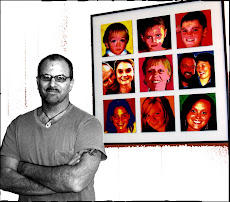
I’ve never quite known why, year after year, the anniversary of John Lennon’s death carried emotional weight for me. I mean, I like the Beatles, but the whole Ed Sullivan Beatle-Mania craze was before my time. As a solo musician, he sang about peace and love. But he wasn’t alone in doing that. Other great artists and humanitarians have come and gone since. Why John?
Evidently, I needed about thirty years to stop and reflect in a way that I can finally distill. And, surprise, surprise… it’s not just about John. It’s largely about me.
When John died, I was a nineteen year-old college sophomore living in New York City. I’d moved there a couple of years earlier to follow my first serious girlfriend to NYC after dropping out of high school. We’d started a life together, full of innocence and idealism. Putting myself through college, I’d walk from our small apartment in Sunnyside (Queens) up to Queens Boulevard, hop on the 7 line, change in Astoria to the RR, and then in the City, I’d transfer to the #6 Lexington train one stop north to Hunter College on 68th Street. It was, for me, an uncomplicated time. At least for a while.
By the fall of my sophomore year, things got complicated and that idealism faded. On the horizon, I saw my relationship’s demise. And I saw it coming in a way that, thanks to my own immaturity, would not be pretty. My own sense of myself, of my basic goodness, was coming unraveled.
This was not, I should point out, the first blow to youth’s innocence for me. I’d escaped serious childhood trauma--the stuff that, in my work, I see robbing children of their innocence early on. But my parents’ divorce when I was twelve had indelibly rewritten what “forever” meant in terms of love for me. Love is never permanent, I concluded. Deep inside, however, I didn’t want to believe that. I convinced myself I’d do it differently. But I didn’t. I would leave my first girlfriend as my father had, for another. This would be my first loss of innocence as an adult: the realization that I'm not always the good guy.
With that backdrop, I heard the news on December 8, 1980, that John Lennon had been shot where he lived, just off Central Park West. This wasn’t some distant place for me. John and Yoko lived eighteen blocks from my mother’s apartment, just across the park from where I took classes every day. It happened in my hometown. It felt personal.
As for John himself, I had no illusions that he was a perfect man. But there was something innocent and idealistic in him and in his music, no where more evident than in “Imagine” and in “Give Peace a Chance.” That kind of idealism, that desire to imagine, to be a dreamer and to believe has always resonated for me.
John's being so young and his leaving behind a wife he loved madly and a five-year-old son he adored, his death came to feel more and more to me like a reminder of my own loss of innocence, of love's impermanence and life's unfairness. Bobby Kennedy’s assassination is often described as doing that for a generation of Americans. It happens when a symbol of hope is cut down, an extraordinary life interrupted. But I was seven when Bobby was shot.
So for me, it was John.
I’m happy to say that a part of me hasn’t given up. And won’t ever give up, on myself or the world. I’ll always keep alive within me that will … to imagine.
Peace, John.






No comments:
Post a Comment